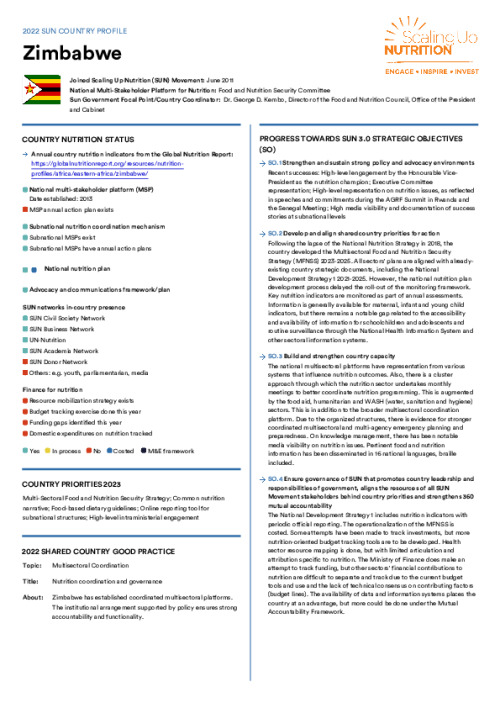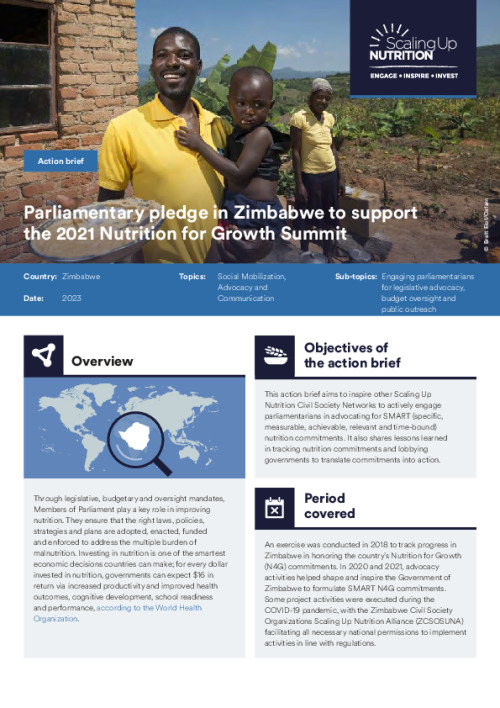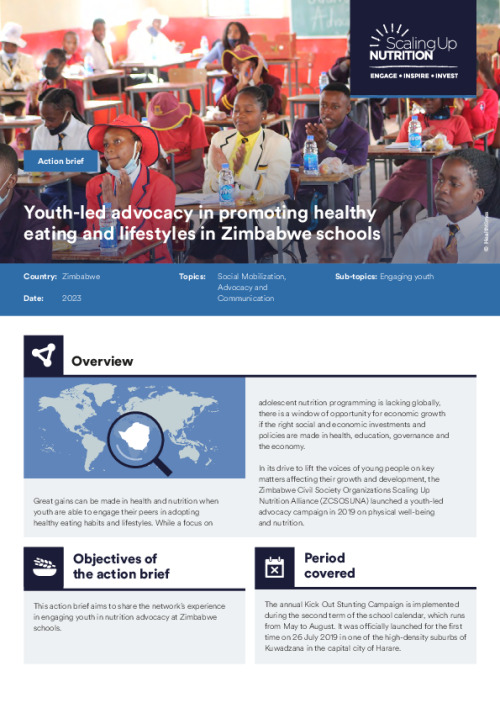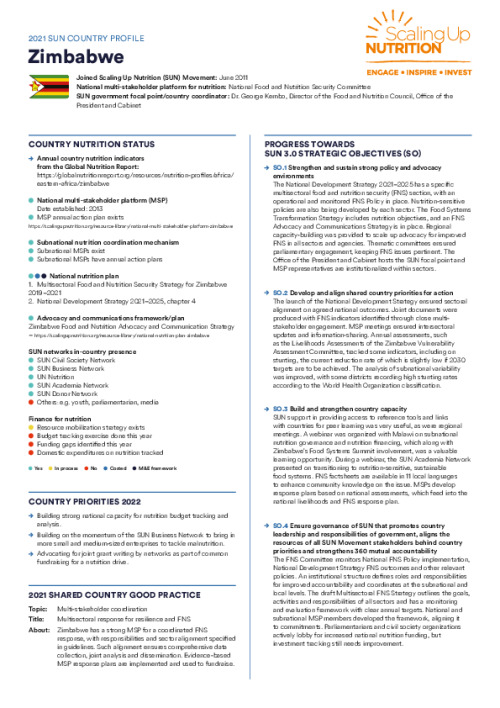
Zimbabwe
Joined Scaling Up Nutrition (SUN) Movement
June 2011
National multi-stakeholder platform for nutrition
Food and Nutrition Security Committee
Sun Government Focal Point/Country Coordinator
Dr. George D. Kembo, Director of the Food and Nutrition Council, Office of the President and Cabinet
Country nutrition status 2022
- Yes
- In process
- No
- Costed
- M&E framework
National multi-stakeholder platform (MSP)
National nutrition plan
Advocacy and communications framework/plan
Subnational nutrition coordination mechanism
SUN networks in-country presence
Finance for nutrition
Country priorities 2022
structures; High-level intraministerial engagement
2022 Shared country good practice
Nutrition coordination and governance
Multisectoral Coordination
Zimbabwe has established coordinated multisectoral platforms. The institutional arrangement supported by policy ensures strong accountability and functionality.
Progress towards SUN 3.0 Strategic Objectives (SO)
Recent successes: High-level engagement by the Honourable Vice-President as the nutrition champion; Executive Committee representation; High-level representation on nutrition issues, as reflected in speeches and commitments during the AGRF Summit in Rwanda and the Senegal Meeting; High media visibility and documentation of success stories at subnational levels
Following the lapse of the National Nutrition Strategy in 2018, the country developed the Multisectoral Food and Nutrition Security Strategy (MFNSS) 2023-2025. All sectors' plans are aligned with already-existing country strategic documents, including the National Development Strategy 1 2021-2025. However, the national nutrition plan development process delayed the roll-out of the monitoring framework. Key nutrition indicators are monitored as part of annual assessments. Information is generally available for maternal, infant and young child indicators, but there remains a notable gap related to the accessibility and availability of information for schoolchildren and adolescents and routine surveillance through the National Health Information System and other sectoral information systems.
The national multisectoral platforms have representation from various systems that influence nutrition outcomes. Also, there is a cluster approach through which the nutrition sector undertakes monthly meetings to better coordinate nutrition programming. This is augmented by the food aid, humanitarian and WASH (water, sanitation and hygiene) sectors. This is in addition to the broader multisectoral coordination platform. Due to the organized structures, there is evidence for stronger coordinated multisectoral and multi-agency emergency planning and preparedness. On knowledge management, there has been notable media visibility on nutrition issues. Pertinent food and nutrition information has been disseminated in 16 national languages, braille included.
The National Development Strategy 1 includes nutrition indicators with periodic official reporting. The operationalization of the MFNSS is costed. Some attempts have been made to track investments, but more nutrition-oriented budget tracking tools are to be developed. Health sector resource mapping is done, but with limited articulation and attribution specific to nutrition. The Ministry of Finance does make an attempt to track funding, but other sectors' financial contributions to nutrition are difficult to separate and track due to the current budget tools and use and the lack of technical consensus on contributing factors (budget lines). The availability of data and information systems places the country at an advantage, but more could be done under the Mutual Accountability Framework.


